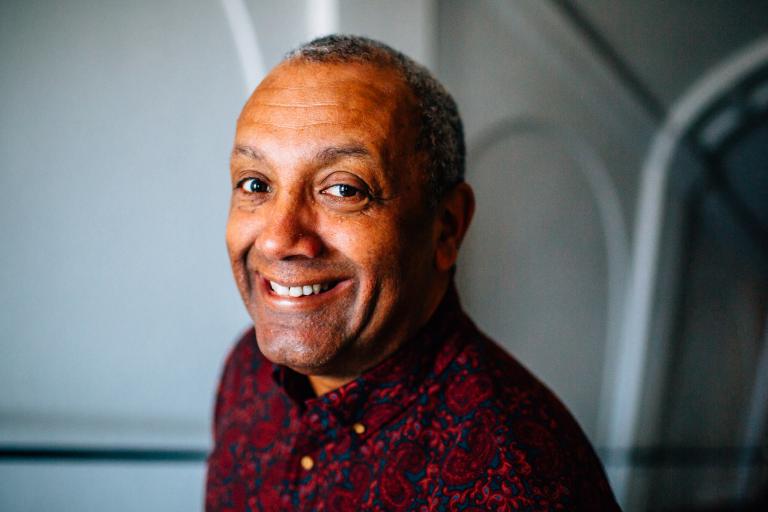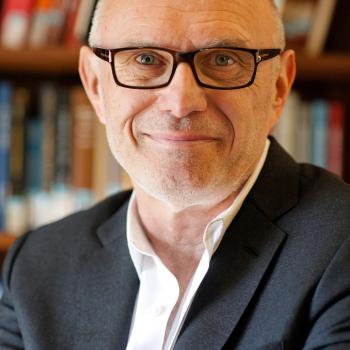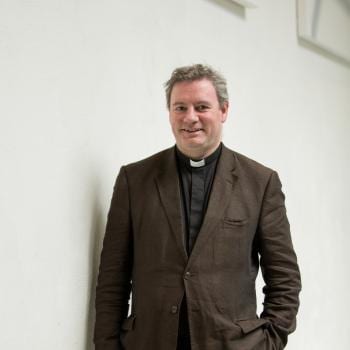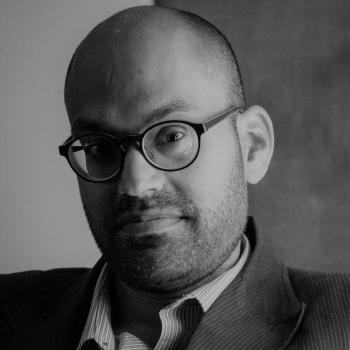
John Swinton, Professor in Practical Theology and Pastoral Care, University of Aberdeen, Scotland, UK.

Why do you love teaching and researching about Christian theology?
My background is in mental health nursing. I worked as a nurse for 16 years before I headed into academia. I therefore came to theology from a slightly different angle than some, and with a different set of questions that have emerged from my experience in mental health care and working alongside of people with intellectual disabilities. That professional experience was really where I was shaped and formed to see the world differently, primarily because the people I spent my time with saw the world differently. So, my formation was in the caring professionals and my vocation emerged as I entered the academy.
What I love about teaching and researching theology is the opportunity to help others to see the world differently. The Gospel really does present us with a lens that can transform our minds and open our spirits to seeing and feeling the world through God’s eyes. It has been fascinating for me over the years to see how students and others respond to the kinds of questions that emerge from the kinds of experiences that I use to ground my theology. What does it mean to love Jesus when you have forgotten who Jesus is? What does it mean to be a disciple of Jesus when you do not have the ability to understand the name of Jesus? What is the vocation of people who may live with serious mental health challenges for all of their lives? Where is God in the darkness? Where is God when the voices come. These kinds of questions really do challenge some of our more hypercognitive theological assumptions and offer rich and thick possibilities for the Body of Christ truly to become a place of inclusion and belonging. I still have that sense of wonder when I reflect on what Jesus has done and how we can learn some vital nuances about who God is and how God functions by listening to voices that are often overlooked or discarded. So, I guess that is why I love my vocation so much!
What is one “big idea” in your scholarship?
My answer to that question is quite straight forward. I want people to come to realise that people are just people no matter what they are going through (I know. Three “peoples” in one sentence isn’t good but …). The field of disability theology and my work in mental health has taught me just how easily it is for people and groups of people to be discarded and not listened to.
Miranda Fricker has done some really interesting work on the idea of epistemic injustice. Epistemic injustice occurs when someone’s perspective is ignored or overlooked when they are assumed not to be the bearers of knowledge. She uses the example of a woman who is in a board meeting. She comes up with an idea and no one responds. A man comes up with the same idea and everyone thinks it is great! The woman has been dispossessed as a knower. Epistemic injustice sits at the heart of stigma. Stigma occurs when one part of a person is elevated to the whole of them. Terms like “disabled” “schizophrenic” “depressive” etc are all stigmatising labels that reduce people to caricatures and stereotypes and discount them as the bearers of knowledge. The field of disability theology is full of voices that have been ignored, rejected, misunderstood and not heard. Disability theology at its best, seeks to overcome stigma and epistemic injustice in their theological modes, in order that hidden forms of knowing can be brought to the fore and fresh and challenging perspectives can be acknowledged and taken into count in our theological and ecclesial constructions. The way to overcome stigma and epistemic injustice is very simple. Learn to look at people as people. I take Jesus quite literally and seriously what he says: “A new command I give you: Love one another. As I have loved you, so you must love one another (John 13:34).” Such love relates to intentionally adopting an attitude wherein we recognise the inherent value in other people, and we are genuinely glad that they are with us. If I leave any kind of legacy that is worthwhile, I hope it is to emphasise that simple but vital fact: Being a Christian means loving and being loved. My work, I hope, gives people some conceptual and practical tools to make such an aspiration a possibility.
Who is one of your academic heroes and why do you admire them?
I don‘t really have any academic heroes. I find that heroes tend to let you down. But two people whom I have found consistently helpful over the years are Walter Brueggemann and Stephen Pattison.
Brueggemann’s focus on the importance of the text and the way that the text reveals to us a new world, not just within the pages of the bible, but prophetically within the every dayness of our lives has been a constant reminder for me of the centrality and the deeply practical nature of the bible for the practice of being a disciple. Brueggemann helps me to see that the bible is a place to find wisdom an not just rules. We live in a time when the world needs such wisdom.
The other person that has had a big influence on me is Stephen Pattison. Stephen is a British practical theologian who has done some fascinating and seminal work in practical theology in terms of theory, method and practice. It was Stephen that really taught me the importance of practically oriented critical thinking and how any meaningful theology needs to take seriously the breadth and difference of God’s people. He opened my mind to the transforming voice of the silenced, and gave me a really important foundation for my earlier and indeed some of my later work.
What books were formative for you when you were a student? Why were they so important and shaping?
Stephen Pattison’s book A Critique of Pastoral Care opened up my thinking to the politics of pastoral care and the entrenchment of caring practices in psychology rather than theology. That book also brought home to me the need for a committed public theology that runs alongside of compassionate theologically oriented pastoral care.
The second book that influenced me greatly was David Bosch’s Transforming Mission: Paradigm Shifts in Theology of Mission. Bosch’s work opened up the important connection between mission and the other theological disciplines, tasks and practices of the church. As well as deeply influencing how I think about mission, he also helped me to see the importance of paradigm shifts for change, and the ways in which radical change requires new ways of thinking and importantly, that not everyone is going to be on your side when you push for change. Bosch also taught me not to be scared of big books!
Read Swinton’s Work
Becoming Friends of Time: Disability, Timefulness, and Gentle Discipleship
Follow Swinton Online
Swinton’s Didsbury Lectures
If you ran into me at a conference and didn’t want to talk theology, what would you want to talk about?
I’d want to talk about music! I’m a musician. I play the guitar, sing and write music. When I was younger I planned on becoming a rock and roll star. I played in bands for years, but I ended up as a theologian. Its a funny old world! I am still hopeful of becoming a rock star. With God, all things are possible?…
What is a research/writing project you are working on right now that you are excited about?
This year (2020) I did the Didsbury lectures at the Nazarene College in Manchester. The title of the series was: Moving Beyond the Empire of Illusion: What do we do about the problem of evil. It is kind of an afterword to a book that I wrote a few years ago: Raging with Compassion: Pastoral Responses to the Problem of Evil. It pushes into some of the unfinished business of that book and offers a practical theological way of thinking about evil, sin and the practice of spiritual warfare. I don’t know if I am excited about it. Evil is always profoundly depressing. But I do think it is important that we think clearly about evil, so I am hopeful that the book will make a difference to people’s lives.




















